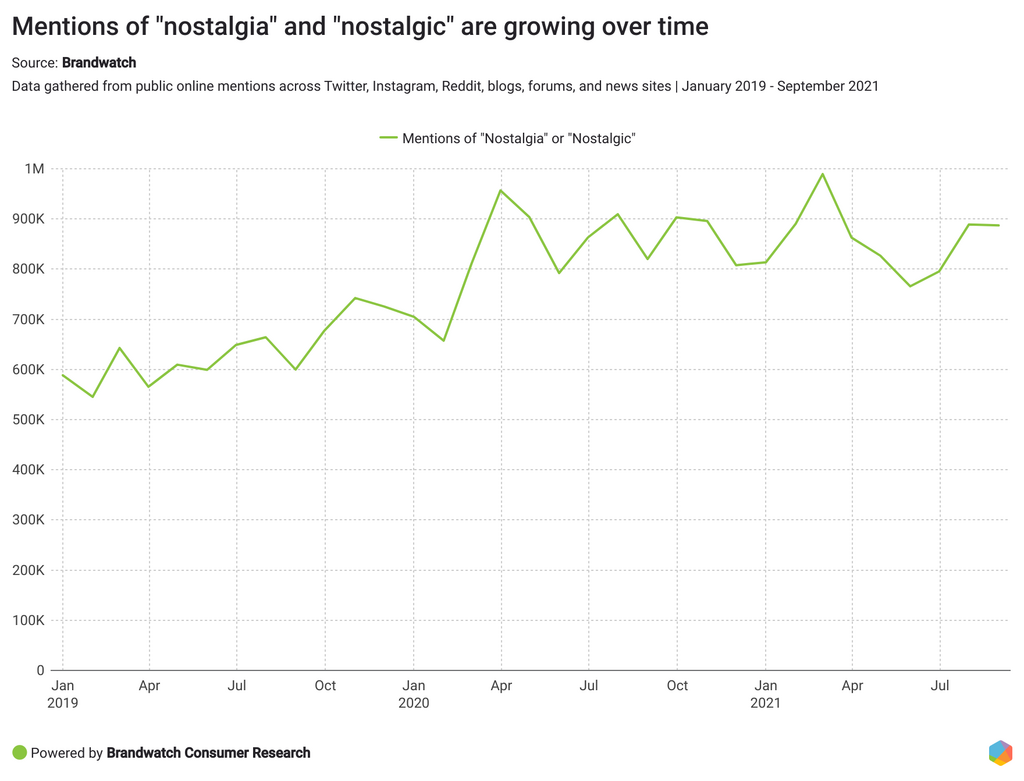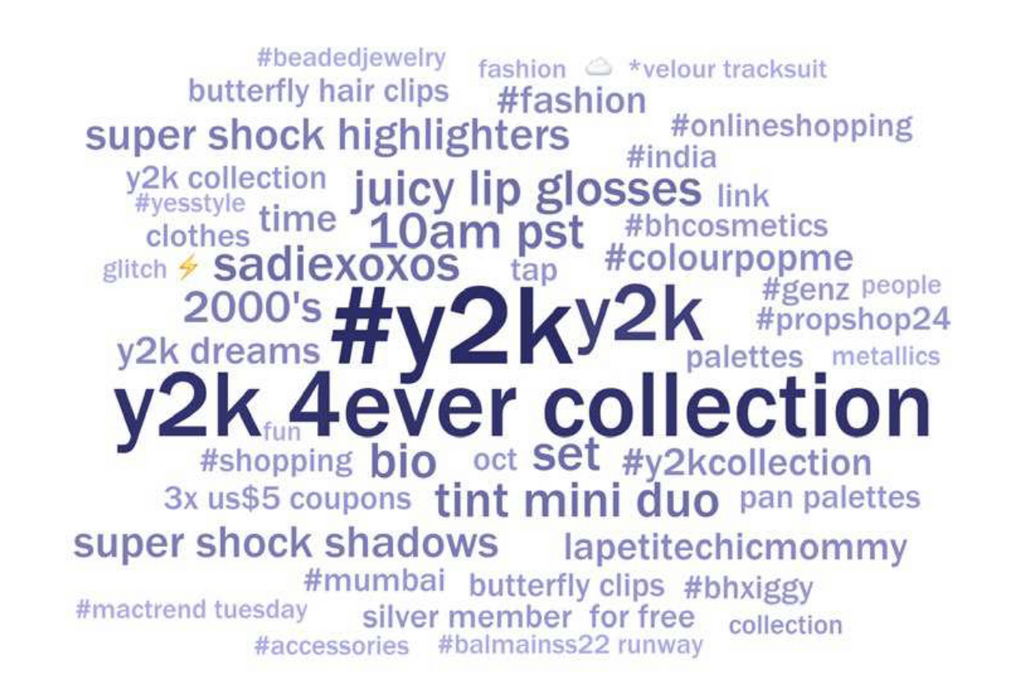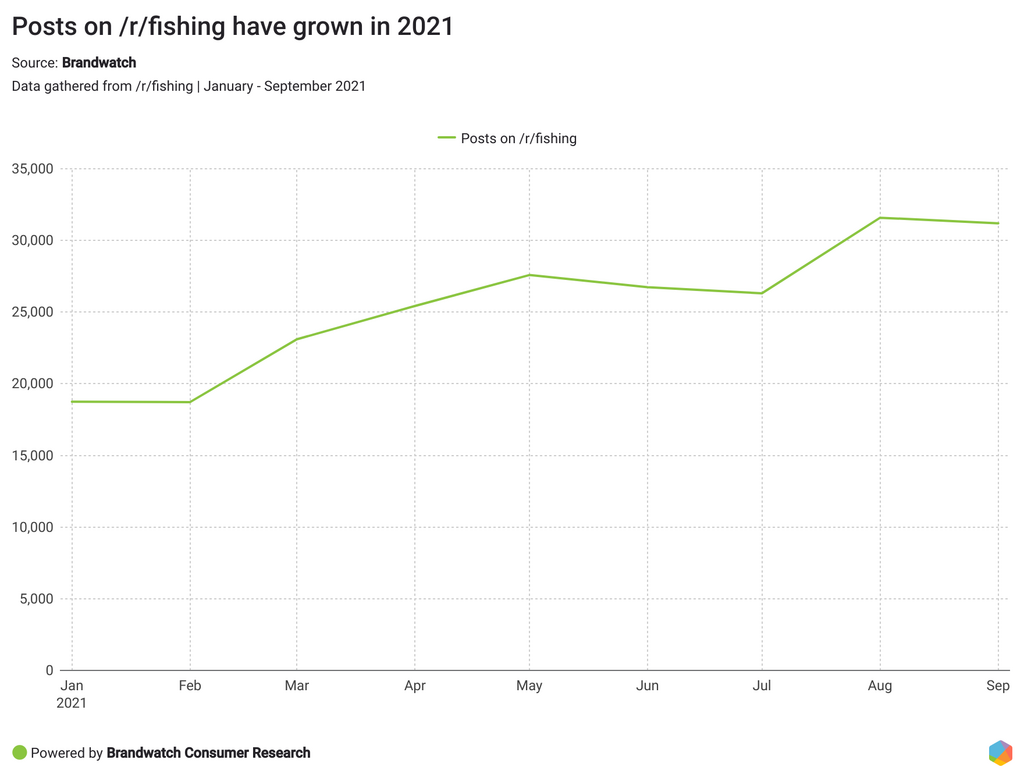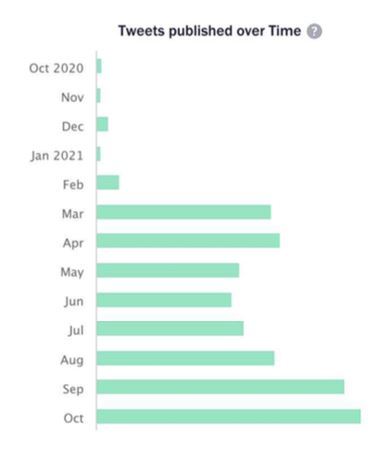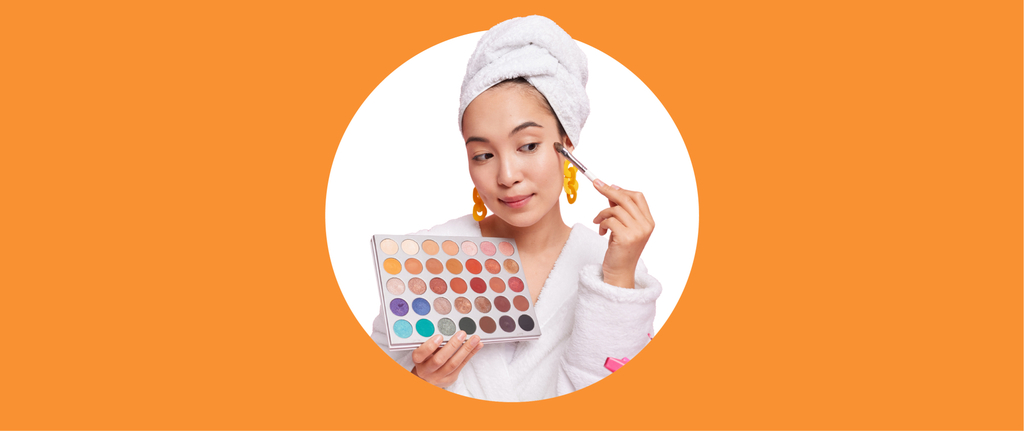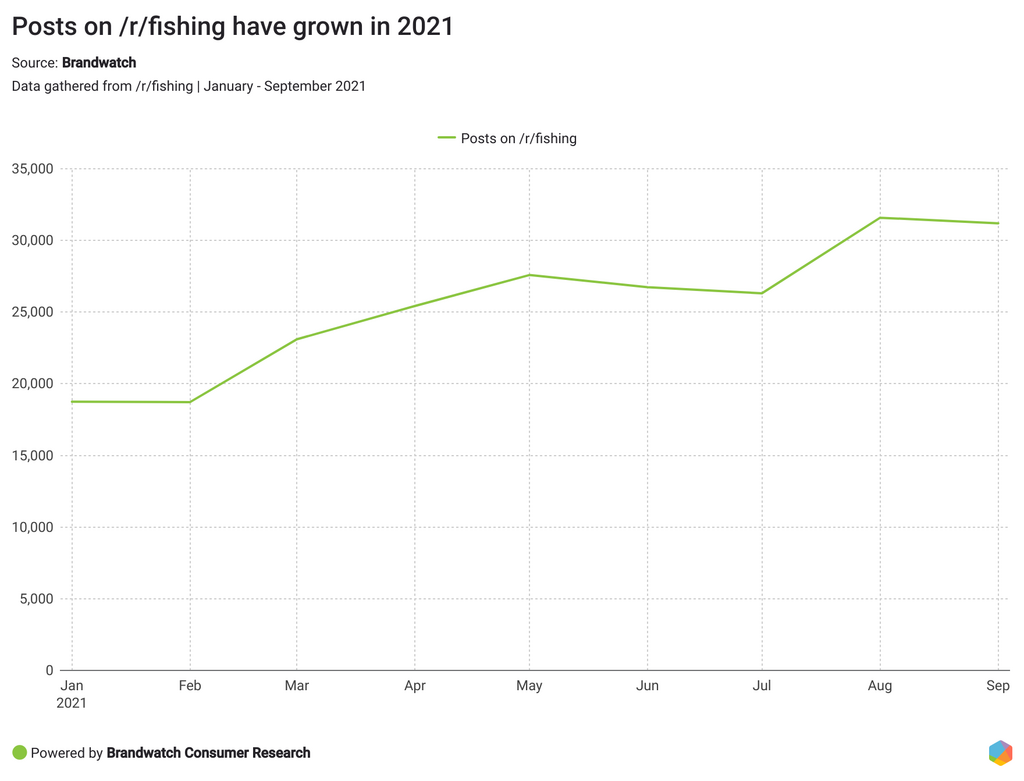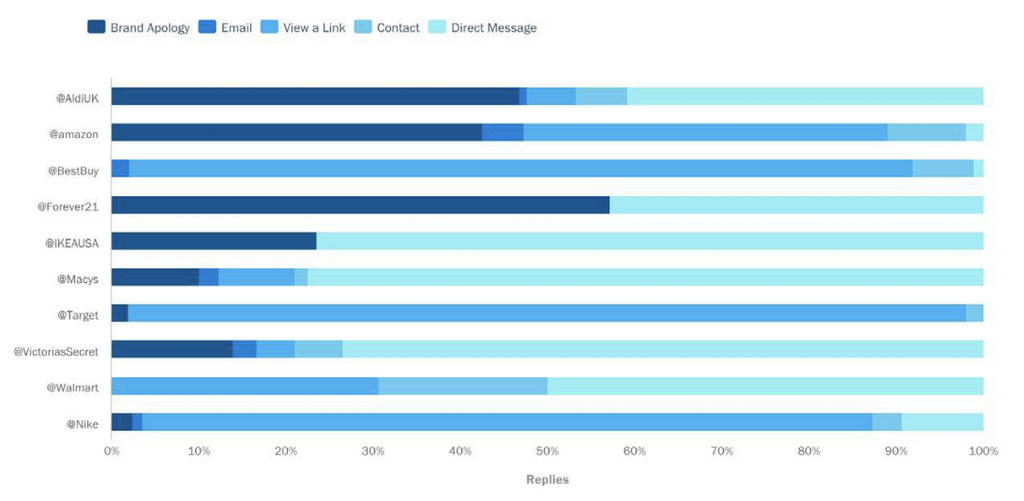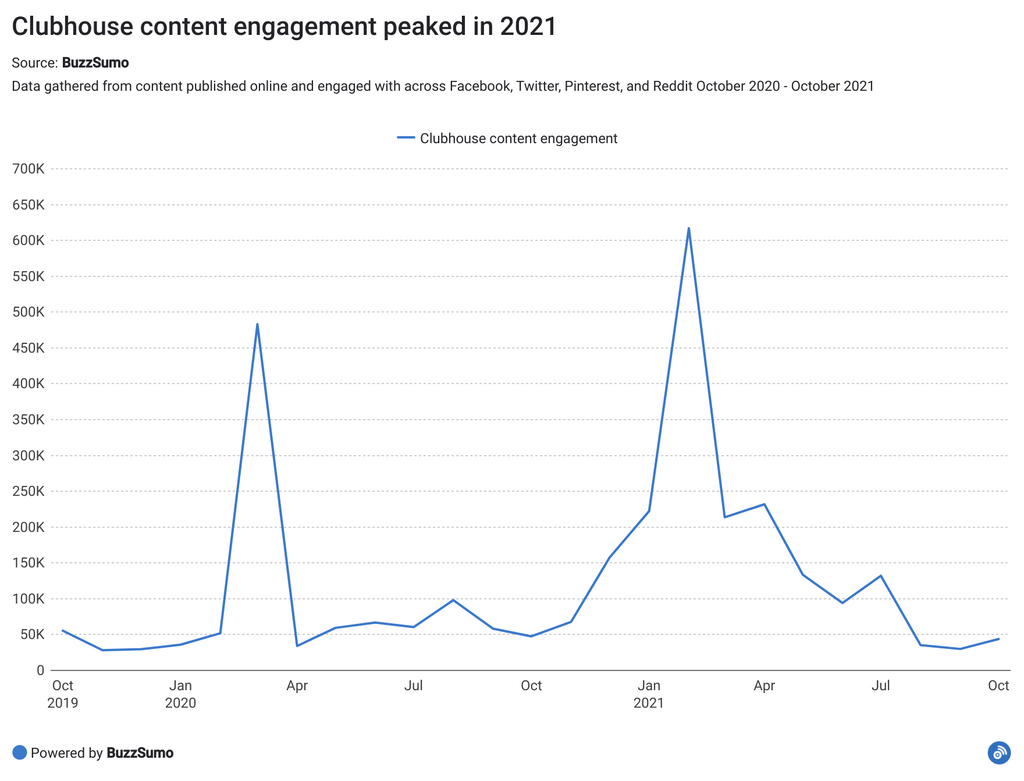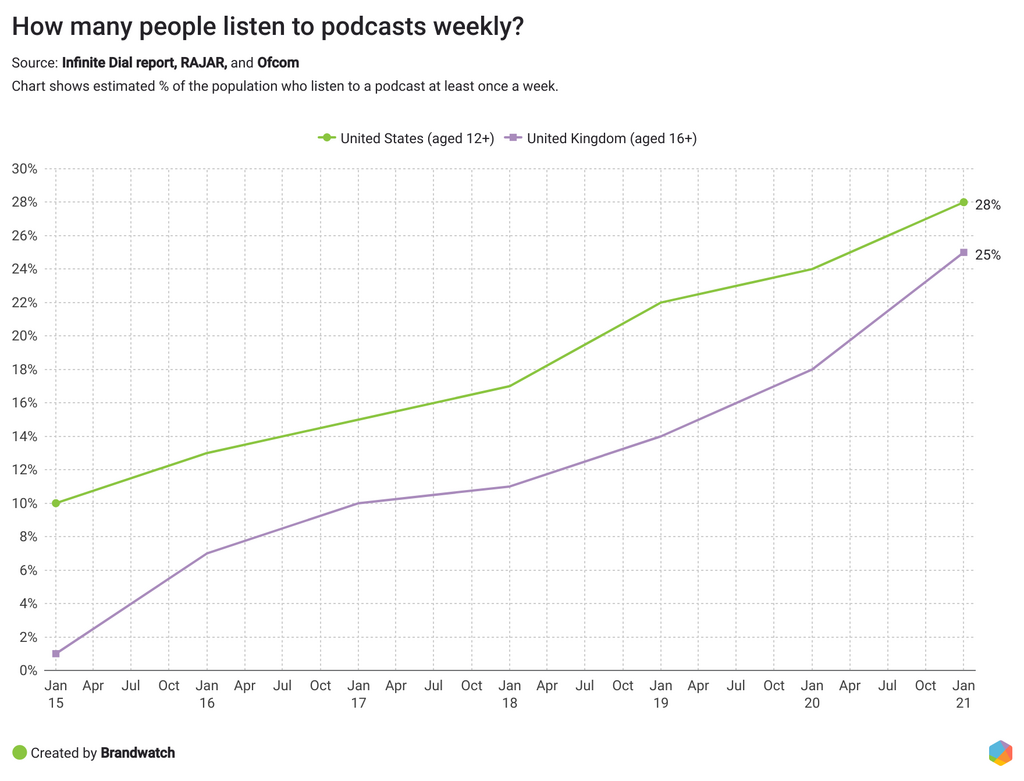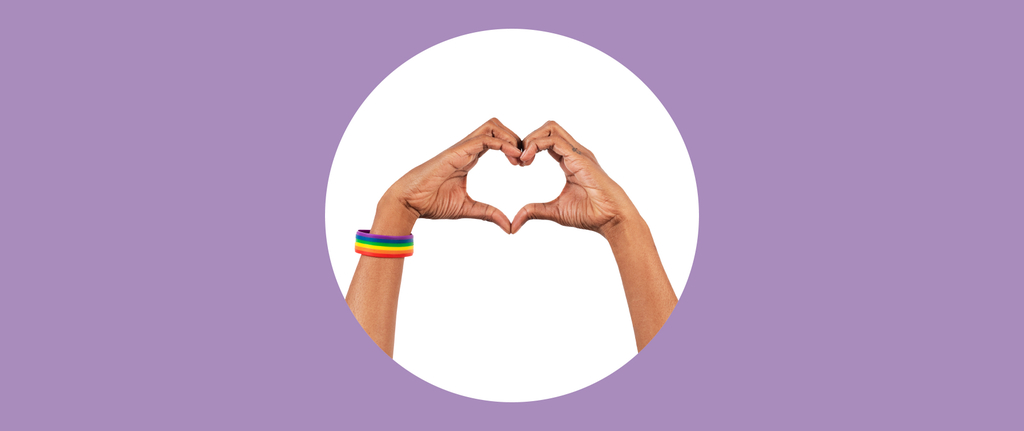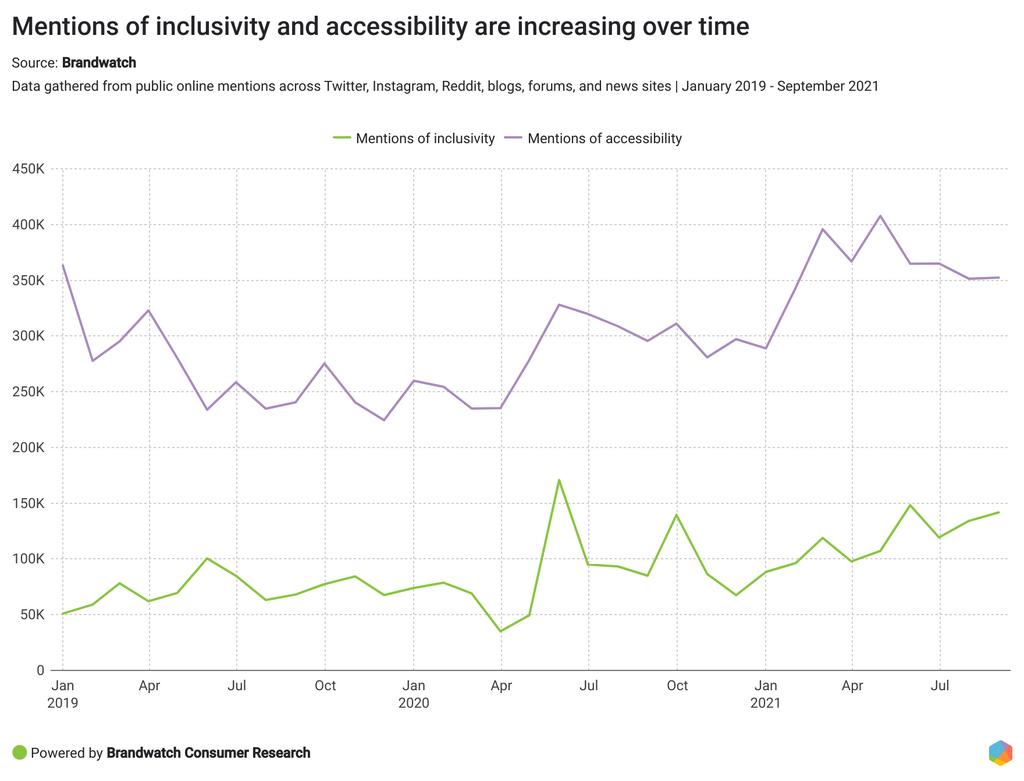REPORT
2022 Digital Marketing Trends
Discover the 10 key digital marketing trends you need to stay on top of in 2022
Book a meetingHistory has always been cyclic. And if we’ve learned anything from our past, it’s that pandemics change society.
The Bubonic Plague led to the Renaissance. The Spanish Flu led to the Roaring ‘20s.
The COVID-19 pandemic has parallels with the plagues of our past. It wouldn’t be a stretch to predict that much like our past pandemics, our tumultuous present will lead to a great societal change in 2022.
The events of the past two years made new needs crop up and brought about a radical shift in the way companies do business.
This post-pandemic recovery period is a watershed moment in which we’ll decide the future of business and marketing.
As we transition into 2022, the main goals of every business should be to understand shifting consumer needs and capture new growth opportunities. That’s why we’ve compiled this list of 10 digital marketing trends that are on the upswing — so you can win big in 2022.
This report will show you where the digital marketing world is headed, how leading brands are already capitalizing on these 10 trends, and actionable tips on how you can leverage them. The trends are also supplemented by insights from monitoring 100 million online sources, listening to 100,000 brands, and analyzing more than 8 billion pieces of content published online.
Trend #1: Retro Revolution
Overview
In September 2021, Blue’s Clues’ Steve Burns got in front of the camera and sent millennials who grew up watching the show into a tailspin. For a lot of viewers, Blue’s Clues was an integral part of their formative years. This simple video features Steve in costume explaining his abrupt exit 20 years ago.
It helped Nick Jr. garner over 2M likes and 529K retweets, and it was just a part of the show’s 25th-anniversary celebration.
How is a children’s show relevant for digital marketers? The COVID-19 pandemic — a time of immense global upheaval — has made us long for simpler times when words like masks and vaccines were not a part of our daily lingo. This collective longing for the years gone by has made nostalgia marketing a big part of every marketer’s playbook.
And we have the data to back it up. The mention volume of the words “nostalgia” and “nostalgic” is much higher now than compared to pre-pandemic times.
People are clearly craving the comfort of the familiar in these tumultuous times, and it shows.
- Tamagotchis have made a comeback.
- Oreos launched a limited edition packaging that lets you create your own mixtape.
- ABBA announced its first studio album in 40 years.
- ...and a lot more brands are indulging in nostalgia with their campaigns.
The old-school vibe is undoubtedly in again.
Early movers
NYX Cosmetics and the Y2K aesthetic
In July 2021, NYX Cosmetics became the first brand to use Triller’s livestream shopping — another 2022 trend right here — to host a throwback-themed event. The show featured early 2000s pop stars, who recreated their Y2K looks using the NYX Cosmetics Fall 2021 collection.
Y2K had a moment on social in 2021, with several brands like H&M, ColourPop Cosmetics, and DollsKill all publishing posts around it.
Starburst and the little lad who likes berries and cream
With the Berries and Cream trend blowing up on TikTok and amassing over 1.2 billion views, Starburst launched an official “Little Lad” Halloween costume in 2021. The brand also ran sweepstakes, asking fans to recreate the original song and dance from the 2007 commercial in their TikToks for a chance to win the official Little Lad costume.
This is an excellent example of brands being required to move at the speed of social. The Little Lad built up steam on TikTok in August 2021, and by September Starburst had taken notice, tweeting about it and eventually launching a whole campaign around it.
Marketer takeaways
- Find the right theme. What retro idea do you want to use for your next campaign? Whether it’s relaunching a much-loved product from your past like Starburst or commemorating an anniversary through a brand partnership like Pepsi, you need to identify the exact themes you think your audience will connect with.
- Research your audience. Think of the different personas in your audience. What’s the demographic? Which generations do your products or services cater to the most? Now, put that together with the themes you think will invoke the warm fuzzies in your audience.
- Be timely and relevant. Is there a current trend you can associate with your brand? Start planning for these eventualities so you can put something out right away. Starburst noticed the Little Lad trend and had an entire campaign, press release, and everything that goes with them running in less than a month.
Trend #2: Community Content
Overview
In 2021, Trusted Media Brands — the owner of Reader’s Digest, The Family Handyman, Birds & Blooms, and others — added another company to its portfolio by acquiring streaming and social video company Jukin Media.
The latter had already gathered over 100 billion lifetime views and its addition will quadruple Trusted Media Brands’ monthly audience reach, giving it access to a massive stash of user-generated content.
Why is this important?
More and more brands are realizing the value of user-generated content and putting in measures to scale it.
The need for UGC is also evident in the data:
- According to a report by Morning Consult, Gen Z and Millennials are less trusting of the average brand.
- A survey by Stackla revealed that only 19% of consumers find brand-created content authentic.
- 56% of consumers also revealed through the Stackla survey that they’re more influenced by social posts when online shopping than during pre-pandemic times.
Consumers today are belief-driven and increasingly look for authenticity from brands. We did just tell you that nostalgia marketing is in, but the glossy perfection of the ‘90s is definitely not.
While the concept of user-generated content is not new, this shift towards belief-driven buying has made peer reviews and word-of-mouth marketing way more important than the carefully curated Instagram feed of a brand.
Early movers
Clinique says #ZitHappens
In a bid to reach younger audiences, Clinique launched a TikTok campaign called #ZitHappens to remove the stigma that surrounds acne. According to Sameer Agarwal, the vice president of Clinique North America, this campaign not only reached new audiences but also helped drive sales.
Saks embraces the UGC style
Saks Fifth Avenue has been ahead of the UGC game for years now with a dedicated hashtag customers can use while featuring their Saks hauls on social media. The #SaksStyle hashtag has been used in 118K posts on Instagram at the time of writing this report.
#LulusOriginal and the next viral dance challenge
Online retailer Lulus partnered with HerCampus and Jalaiah Harmon to create an original song and dance in a bid to encourage a dance challenge on TikTok. As of writing this eBook, the #LulusOriginal hashtag has amassed over 10.8 million views.
Marketer takeaways
- Analyze what your customers are sharing. Research the audience that’s already posting about you. Analyze the demographic that posts the most about you, see which product they talk about most, and ask yourself more questions about these users and their behavior. Answering them will help you craft a strategy to leverage UGC at scale.
- Conduct a challenge. Ever seen how fast a TikTok dance challenge catches on? One of the best ways to ensure UGC is to initiate a contest or challenge and encourage users to participate in it.
- Engage with the community. Encourage the users already posting about your brand through reposts, sharing, and mentions. Your community is vital to building a strong UGC strategy, so interact with them and be more receptive to the UGC you already get so you can inspire more.
Trend #3: Mixed Reality
Overview
Augmented reality is a trend thrown around a lot at the end of every year as a prediction for the future. But at no time has the impact of the virtual on the physical shown more signs of growth than during the pandemic.
One could even say that the pandemic has accelerated the trend, with brands having to go full digital in a blink. In fact, McKinsey reports that both businesses and customers experienced five years’ worth of digital adoption progress in just eight weeks in the beginning of the pandemic.
“Hybrid” is the word of the year across all industries, thanks to pandemic-induced shutdowns and digital adoption. And both mixed reality and hybrid events have seen an increased volume of online mentions over time.
This amalgamation of the physical and digital will stick around in 2022, especially with big companies like Facebook backing this trend. Incidentally, Facebook, Inc. has now been rebranded to Meta, with the company creating 10,000 new jobs across the European Union to help build the metaverse. Facebook has also already made its first big investment in the metaverse, spending $50 million on research programs to ensure these products are developed responsibly.
Early movers
Burberry’s social retail store
Launched at the end of 2020, Burberry’s social retail store in Shenzhen, China, was the start of a new line of digitally-enabled, immersive retail experiences. This specific store is centered around a custom WeChat mini-program that allows customers to interact with the brand both in-store and online.
Etsy House and the online marketplace
Etsy came up with an interactive AR experience for shoppers to tour a virtual house comprising curated items from its marketplace. This new feature joins a long line of AR experiences Etsy has started providing, including an AR feature that lets you see how art prints would look on your own walls before hitting Buy.
Macy’s now allows live shopping
The retailer launched live shopping in October 2021, with weekly livestreams on Macy’s Live. In addition to watching in real-time, customers can also catch all previous broadcasts on the website.
According to BuzzSumo, the terms “social shopping” and “livestream shopping” have both seen an uplift over the last couple of years.
Burger King keeps it real with NFT
In September 2021, Burger King partnered with Sweet, a nonfungible token (NFT) platform, as part of its Keep It Real meals. Each Keep It Real meal box carried QR codes that guests had to scan to unlock one of three digital collectibles. Collecting all three NFTs led to various rewards for customers.
At the time of writing this eBook, the number of brand tweets around NFTs has been steadily increasing throughout 2021. The tweets are primarily from brands belonging to sports, banking and finance, technology, luxury, retail, education, and personal care industries.
Marketer takeaways
- Implement an innovation mindset. The current marketing landscape demands innovation and testing. You need to be creative and develop out-of-the-box means to rise above the social media noise. Whether it is a digitally immersive retail store, a hybrid event with a social media play, or something as simple as an Instagram filter, you need to embrace the innovation mindset to stand out.
- Think engagement, think gamification. Immersive digital experiences are an excellent way to gamify marketing. They also help create a buzz around your products or services and prompt users to engage with your brand. Make sure your gamified campaign isn’t just engagement bait, though. Your campaign needs to be true to your brand identity and also resonate with your audience, providing them with some value.
- Choose the right tech. Social retail, AR, NFTs... This trend of blending the virtual with the physical provides a lot of different creative avenues to go down. Don’t jump on the bandwagon just because all the popular kids are doing it. For instance, a mom- and-pop store will definitely not switch to social retail overnight — at least, we aren’t in that season of Black Mirror yet. Instead, think about what will engage well with your customers and pick the right tech for it.
Trend #4: Influencer Commerce
Overview
According to eMarketer, US social commerce sales will increase by 35.8% to $36.62 billion in 2021. Social commerce is one section of the eCommerce umbrella that is clearly booming and will continue to grow.
While we’ve already looked at livestream shopping and UGC, one aspect of social commerce that will gain considerable traction in 2022 is influencer marketing.
Influencers can…
- Help you reach a bigger audience and create brand awareness
- Sway your target customers’ purchasing decisions
- Improve brand loyalty and trust
The meteoric rise in popularity of apps like TikTok and Twitch also shows the potential for activating influencer partnerships. We predict that 2022 will see the impact of influencers reaching the bottom of the funnel, and helping with quantifiable conversions.
Early movers
Wonderful Pistachios partnered with streamer GoldGlove
This packaged foods company sponsored streamer GoldGlove’s live streams to reach his vast audience base on Twitch and YouTube. The brand also ran exclusive promotional offers for viewers in a bid to broaden its clientele.
Dr Pepper at zero gravity
To promote its Zero Sugar soda, Dr Pepper teamed up with Triller to take 20 influencers on a zero gravity flight. This was definitely a unique way to use influencer marketing to drum up excitement about a product release.
The Charli & Dixie x Simmons mattress
In early 2021, mattress brand Simmons partnered with the D’Amelio sisters to launch a memory foam mattress. They also promoted it through a TikTok sweepstakes. This was a smart approach to speaking to the Gen Z crowd on TikTok, especially considering the net follower count the D’Amelio sisters have.
- Charli D’Amelio: 125.2 million followers
- Dixie D’Amelio: 55.2 million followers
- #SimmonsDreamRoom had 47.8 million views at the time of writing
Marketer takeaways
- Define your goals. To build a proper influencer marketing strategy, you first need to identify your goals and key results. This will help you work backwards and identify the influencer(s) who will help you achieve your goals.
- Find the right influencers in your niche. Once you’ve listed your goals, identify the influencers operating in the same vertical or niche as your brand. Their followers will already be invested in their content and the topic they are known for, so their opinions and endorsements mean a lot. Micro and nano influencers, in particular, can help you engage better with your niche target audience.
- Use analytics to measure results. Like any other marketing campaign, influencer marketing efforts need a strong feedback loop. Measure the return on investment of each campaign to build a data-backed influencer marketing strategy.
Trend #5: Noiseless Niche
Overview
In 2021, you cannot wander into a Barnes & Noble without encountering a “Trending on #BookTok” table.
BookTok, the book community of TikTok, gets over 20 billion views and has even given brick-and-mortar stores a sales boost. Just the hashtag #BookTok had over 24 billion views at the time of writing this eBook.
This is a larger sign of the importance not just of short-form entertainment like TikToks but also of subcultures and communities.
Social media is noisy, and some users are moving away to create niche communities where they can communicate with like-minded individuals about shared interests. These communities give users a sense of belonging, especially in a time of immense upheaval where human connection is lacking.
Niche communities exist in both bigger platforms — through your Slack channels, Facebook Groups, subreddits, and forums — and as smaller social networks. Steering conversations in such communities is also easier because of the topic focus, increased engagement, less noise, and even less competition.
2022 will definitely see users migrating to smaller communities and forming subcultures. For example, the fishing subreddit r/fishing has seen a good growth in posts in 2021.
This is why a lot of brands, too, are already targeting niche communities in their marketing. Jumping on this trend early can help you build strong relationships with your audience before the competition does.
Early movers
433 and the goals it serves across social
433 is a niche football community that has grown over the years and tries to live up to its name as The Home of Football. The community is spread across multiple social networks and creates content that stands out on all of them. Fun fact: 433’s Instagram follower count has grown by 60.7% since 2020.
Hot Topic, Discord, and Anime & Beyond
The retail chain created a Discord server called Anime & Beyond for the anime fans in its audience. Hot Topic already sells anime apparel and accessories. This Discord server was a great way to appeal to the already big anime fanbase in its target audience.
Other brands with a Discord presence include Adobe, Taco Bell, Sacramento Kings, UK Defence Journal, and many more.
LetterboxD breaks the box office
This social media site just for movies has blown up in the last couple of years. BuzzSumo, too, notes that the engagement of content around LetterboxD has seen a major uptick since the beginning of the pandemic. It’s yet another sign that users want to settle in with their niches of shared interest.
Marketer takeaways
1. Identify your goals. Who do you want to reach? Where do they usually hang out? Do you want to create your own channel, or is it okay to participate in conversations in an existing channel?
Once you have your answer, act on one of the following two tips.
2. Create a community around your niche. Communities have become high-growth channels. Create a Slack channel, Discord Server, Facebook Group, or any other kind of online community where your audience can create a shared bond over your niche. Ensure you don’t focus too much on making a sale and inadvertently drive users away from your community.
3. Mark your presence in an existing community. Instead of creating a new online community, you could always establish your presence in an existing one. Run ads on the communities that allow them — subreddits and niche platforms like Dribble and Goodreads, all allow advertising. You might also want to participate without running ads — just make sure you’re adding value to the community when you’re posting.
Trend #6: Consumable Content
Overview
According to a report by App Annie, TikTok has now beat YouTube’s average watch time for Android users in the US. This is particularly impressive because the network only allows for a video length of three minutes, whereas YouTube allows much longer videos. The latter is also behind in terms of engagement, with BuzzSumo showing that video engagement on YouTube has declined by 37% since 2020.
TikTok’s meteoric rise in popularity in such a short period of time has not exactly gone unnoticed, with the other social networks coming up with their own snackable clones including Instagram (and Facebook!) Reels, YouTube Shorts, and Snapchat’s Spotlight.
Much of TikTok’s success can be attributed to its short-form content that’s authentic, entertaining, and democratizes social media for all.
With decreasing attention spans comes an increased appetite for digestible microcontent. The shift to mobile has also created the need for pithy content that captures your audience’s attention quickly.
Visual storytelling, in particular, sticks around in people’s minds more than text. This is where your images, videos, infographics, and memes stand out in your audience’s eyes.
2022 will see more brands embracing micro-content to reach large audiences.
Early movers
Snackable content — the Sparknotes version.
This study guide brand has seen an immense rise in following on Twitter and Instagram, and not just amongst literature majors. This success can definitely be attributed to the classic literature memes Sparknotes posts. No one can resist slamming down the like button when they see posts somehow relating Edgar Allen Poe to Parks and Recreation.
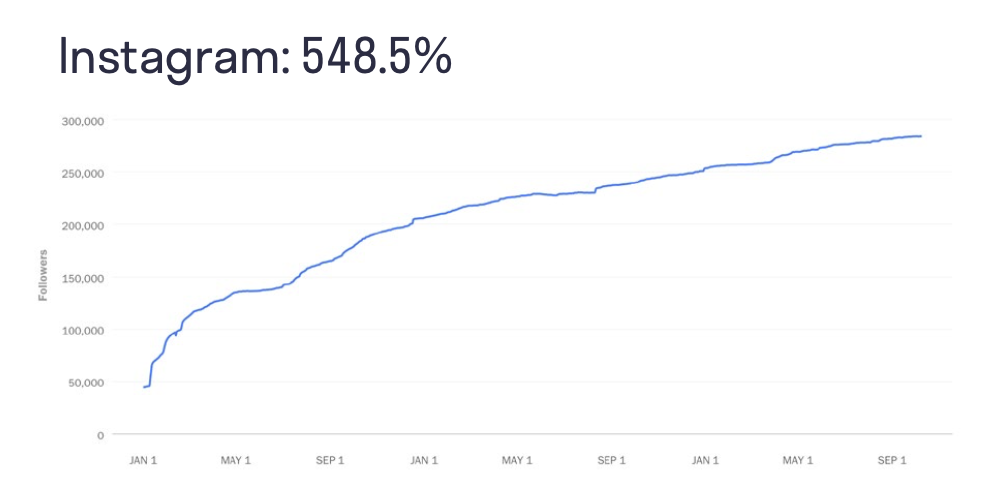
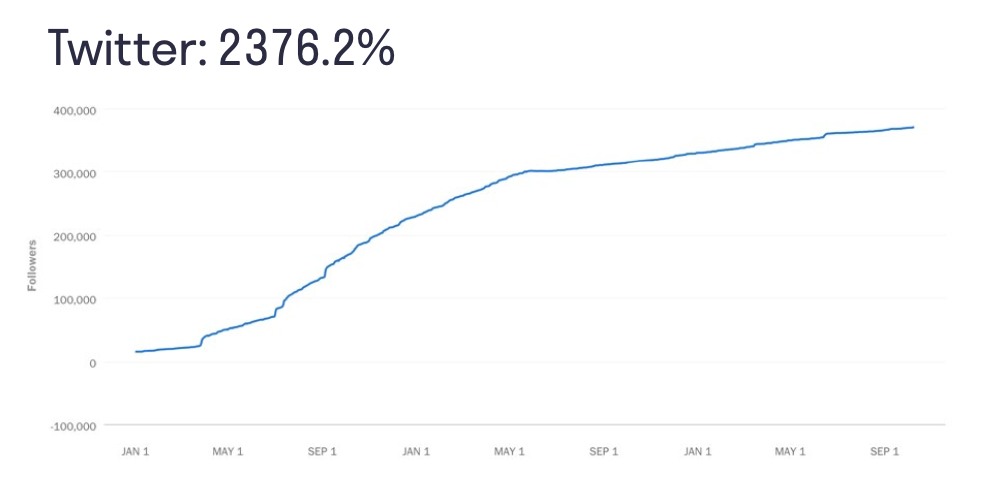
Neutrogena debunks myths on TikTok
This personal care brand debuted its first TikTok campaign in 2021 by debunking skin care myths in short videos. This approach helped the brand reach a wider audience and appeal to them with educational, snackable content.
Marketer takeaways
- Remember that brevity is key. This may be obvious, but any piece of snackable content should be skimmable and easy to consume. At the same time, it should also inform your audience and entice them to engage with it. If you’re creating video content, remember that every second and every word counts.
- Don’t shy away from repurposing. Snackable content doesn’t have to exist in a vacuum. You can also repurpose your existing long-form content into snackable bites for social. This will also drive people to your website, giving your content a nice bump in traffic.
- Leave room for serendipity. Snackable content does occasionally involve jumping on trends, pop culture moments, and Twitter memes. By all means, plan your long-term snackable content calendar, but also be ready for bandwagon-jumping when the need arises.
Trend #7: Cross-Generational Marketing
Overview
Gen Z seems to be the one generation every marketer is trying to get the attention of. In 2022, however, it is imperative to look beyond the fads of just one generation and understand them all to market better.
- Gen Z: The oldest Gen Zers are 24 at the time of writing and are seen as the trendsetters with enough influence to control consumer behavior and create cultural shifts.
- Millennials: The oldest millennials have turned 40 this year and have a lot of spending power.
- Gen X: Gen Xers are in their prime working years and earn way more than any other generation.
- Baby Boomers: Baby boomers have had more time to accumulate wealth and have $2.6 trillion in buying power.
Many businesses have been slow to realize that just focusing on millennials and Gen Z with their digital marketing is missing out on key audiences with a lot of buying power (Gen X and baby boomers). If your brand has people of all ages in its target market, your marketing must also cater to the different generations and their preferences.
Early movers
19/99 and inclusive beauty
19/99 is a Canadian beauty brand that launched during the pandemic and has already caught a lot of attention for staying true to its word of being age- inclusive. As its name indicates, all products are made for women between the ages of 19 and 99. A simple scroll through their Instagram feed will show you just how generationally inclusive this new brand is.
Marketer takeaways
- Find out what makes each generation tick. Gen Z isn’t just about TikTok, just like millennials aren’t just about killing the doorbell industry. Each generation has specific and unique characteristics. Identify those and put them together with their spending power, the social networks they haunt, and more, and you have an excellent generational strategy for marketing.
- Adapt your messaging. What works for one generation may not work for another. Make sure to adapt your messages for each generation depending on the insights you’ve gleaned about them.
- Use diverse marketing efforts. If your audience is diverse in age, your marketing content should reflect that. Ensure that all your customers can see themselves reflected in your marketing messages and that you aren’t pigeonholing your content to focus on just one age group.
Trend #8: Social Support
Overview
Customer crankiness is apparently at an all-time high right now, with WSJ reporting that adults are throwing tantrums while dining, flying, and shopping. If there’s one thing you need to know about irate customers, it is that they talk. And usually on social media.
Times are a-changing, and it’s no longer enough just to list a customer support email on your social media and call it a day. Customers expect help and answers in a blink, and your support team needs to respond just as fast.
With brands going fully digital in 2020, the need to provide prompt customer service via social media has also risen. In fact, Forrester predicted that digital customer service interactions will increase by 40% in 2021.
Using social media — an inherent marketing medium — to provide prompt customer service has already become a must-have. In 2022, marketers need to be prepared to see this expand beyond answering basic queries to using chatbots, providing personalized advice, and more.
Quality customer service is essential to deliver an excellent retail experience. Here’s how top retail brands handled customer service via Twitter in 2021.
The top customer service response in the retail industry seems to be to invite customers to DM the brand. This might mean that some grievances are taken out of the public domain, but that won’t work every time.
Early movers
(Culture) Kings of productivity
This Australian premium streetwear brand has managed to double the number of direct messages and improve productivity by a mile. As a brand with an ever-increasing customer base, Culture Kings still puts the customer first and provides excellent service by replying promptly.
BMW Germany and Whatsapp
Whatsapp is one platform some brands are already using to send personalized messages to their customers. BMW Germany, for instance, uses Whatsapp to optimize workshop customer service. This has led to the brand’s callback requests dropping by 60% thanks to real-time Whatsapp updates.
Marketer takeaways
- Use social listening to communicate with customers proactively. According to Gartner, only 13% of customers have received proactive service from brands. With social listening, you can proactively look for trends, jump into conversations with customers, and fix issues quickly instead of waiting for an @ mention with a complaint.
- Create a new handle for customer support. Create a dedicated customer service handle on social media to respond to customers and support them. Alternatively, invest in a social media management platform that can help ensure that all messages flow into one inbox, and you never miss a customer ping.
- Document, document, document. Social customer service is relatively new, after all, so make sure to document your processes and edit them on the go so your support team can put their best foot forward on social.
Trend #9: Audio Activity
Overview
Starved of social interaction, live audio quickly became an avenue for consumers to be entertained and informed, and for marketers to connect with those consumers in 2021. It all started with the social audio app Clubhouse, which immediately led to several clones cropping up as new apps or additional features in existing social networks.
According to BuzzSumo, engagement around Clubhouse content has been declining in 2021. However, there is a 76% uplift for Clubhouse when you compare total content engagement in 2021 against 2020. The decline could, perhaps, be attributed to the app coming off of closed beta and the initial attention jumping to the next big thing.
In 2022, audio in general will surely be a part of the marketer playbook. TikTok has always been a trendsetter, and even this app has realized the importance of audio, adding a roster of Sound Partners.
As the Brandwatch Bulletin recently reported, the number of people tuning in to podcasts is only increasing, showing that the audio market as a whole is here to stay.
Early movers
Estée Lauder dares to love audio
Thanks to a partnership with The New York Times, the beauty brand jumped on the audio bandwagon with its Dare to Love campaign. The campaign followed a creative storytelling narrative, with artists and influencers talking about different types of love.
NFL and Twitter’s multi-year partnership
The NFL and Twitter announced a multi-year partnership wherein the league would be creating exclusive audio content on Twitter Spaces. As part of the partnership, the NFL also promised to host 20 Spaces for the 2021 NFL Season.
Marketer takeaways
- Be human. The whole concept of live audio is backed by users expecting authentic, non- curated conversations around topics of interest. If you’re getting into social audio as a brand, try to be genuine and human to connect with your audience better. After all, social audio is more a branding exercise than a way to advertise and make a direct sale.
- Partner with influencers. We did say influencer-backed social commerce is going to be a trend in 2022. Partner with an industry influencer to host a conversation on a topic relevant to your brand, industry, or niche. NARS Cosmetics got it right with this Clubhouse conversation with influencers.
- Sponsor a room. Not willing to talk yourself? Sponsor a conversation — preferably around your niche — to give your branding a boost amongst attendees.
Trend #10: Improved Inclusivity
Overview
First things first: Inclusivity is not a marketing ploy to increase profits.
Why, then, is it on this list? That’s simple. Your products and services are not targeted towards just one type of customer. That’s why your marketing should strive to represent everyone irrespective of race, sexuality, gender, religion, and more.
Conversations around accessibility and inclusion have been growing across 2020 and 2021. This indicates that inclusivity is something every brand should be working towards bettering and improving over time (it’s not a one- time-only task).
The past two years have seen a lot of calls for better representation in media and advertising, diversity in the C-Suite, and for businesses to go beyond performative activism and do better. 2022 will see more brands taking this to heart — making inclusivity and accessibility a top priority for everyone.
Early movers
Olay’s #DecodeTheBias initiative
In 2021, Olay partnered with Algorithmic Justice League and Black Girls Code to challenge algorithmic bias, wherein beauty searches prioritize white models. This initiative aims to send 1000 girls to code camp and pursue careers in STEM.
Frito-Lay’s back-to-school blastoff
This snack brand partnered with aspiring astronaut Alyssa Carson for the Back to School Blastoff initiative. Frito-Lay aims to diversify STEM by sending 50 girls to Space Camp in the next five years as part of this initiative.
McDonald’s, FaZe Clan, and inclusion
McDonald’s partnered with the eSports organization for content activations around diversity and inclusion. FaZe Clan’s announcement tweet fetched the brand over 40K likes on Twitter.
Marketer takeaways
- Be mindful of identities. If your website, post, or ad features real humans, is there an identity you’re over-representing? Surely, your product isn’t just used by one set of people, so make sure to represent people equally, regardless of their age, race, sexuality, religion, or gender identity.
- Words have power. So, choose them carefully. You don’t want to exclude an entire group of people inadvertently. “Hey, guys”, “ladies and gentlemen”, and other commonplace expressions are all exclusionary in one way or another. Be mindful of the words you use in your marketing communications so as not to other the very audience you’re marketing to.
- Practice what you preach. Inclusivity is not a box you check off to win marketing points by posting statements on Twitter. Start internally and see if your team has members from diverse cultural backgrounds. Even if there is diversity, biases can still exist. Approach inclusion as something that requires constant assessment and sensitivity checks rather than a one-and-done type task.
Now that you know which trends will dominate in 2022, you definitely have an edge over your competitors.

